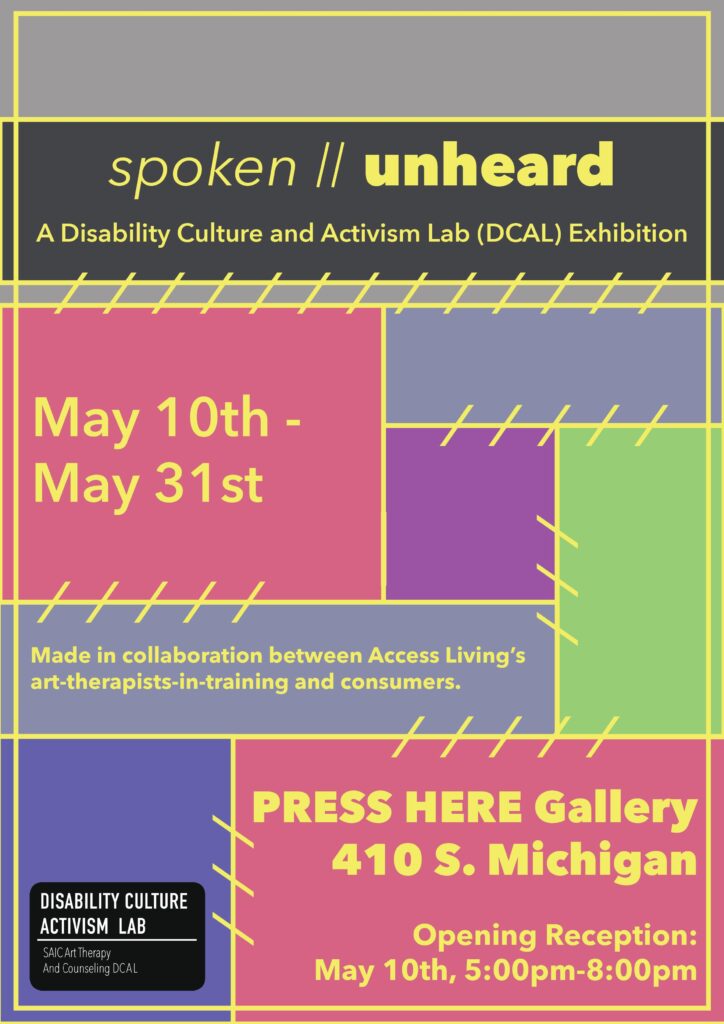- This event has passed.
Opening Reception of spoken//unheard: A Disability Culture Activism Lab (DCAL) Exhibition
May 10, 2024 @ 5:00 PM – 8:00 PM

The Arts & Culture Project is excited to announce the opening reception of spoken//unheard: A Disability Culture Activism Lab (DCAL) Exhibition taking place at the Center for Mad Culture.
spoken//unheard is a collaboration between Access Living’s art-therapist-in-training interns and consumers. spoken//unheard features the stories of disabled persons and disabled identities that, though voiced, are often silenced by a non-disabled world. This exhibition provides a space for those voices to be heard, and for their stories to be given a physical presence.
The spoken//unheard exhibition will run from May 10 to May 31, 2024. The Center for Mad Culture is open by appointment.
Access Information
The Center for Mad Culture is on the 4th floor in the Fine Arts Building. It is accessible by elevator. A wheelchair accessible restroom is available. The Center for Mad Culture offer captioning services at all times through the app Ava. Ava is free to use. Devices will be available on site for your use with this app. They also offer audio description tours of all exhibitions upon request. Contact brandolph@accessliving.org with access questions and requests.
Sponsor Information
The spoken//unheard exhibition is supported by the Arts and Culture Project at Access Living; Shirley Ryan Abilities Lab; Bodies of Work: Network of Disability Art and Culture; and Disability Culture Activism Lab (DCAL), a teaching lab housed under the department of art therapy and counseling at SAIC. Bodies of Work is a part of the Department of Disability and Human Development within the College of Applied Health Sciences at University of Illinois-Chicago. This program received generous funding from Healing IL: funded by the Illinois Department of Human Services in partnership with the Field Foundation. This program is partially supported by a grant from the Illinois Arts Council Agency.
The contents of this exhibition were developed under a grant from the National Institute on Disability, Independent Living, and Rehabilitation Research (NIDILRR grant number 90RTCP0005). NIDILRR is a Center within the Administration for Community Living (ACL), Department of Health and Human Services (HHS). The contents of this exhibition do not necessarily represent the policy of NIDILRR, ACL, or HHS, and you should not assume endorsement by the Federal Government.
